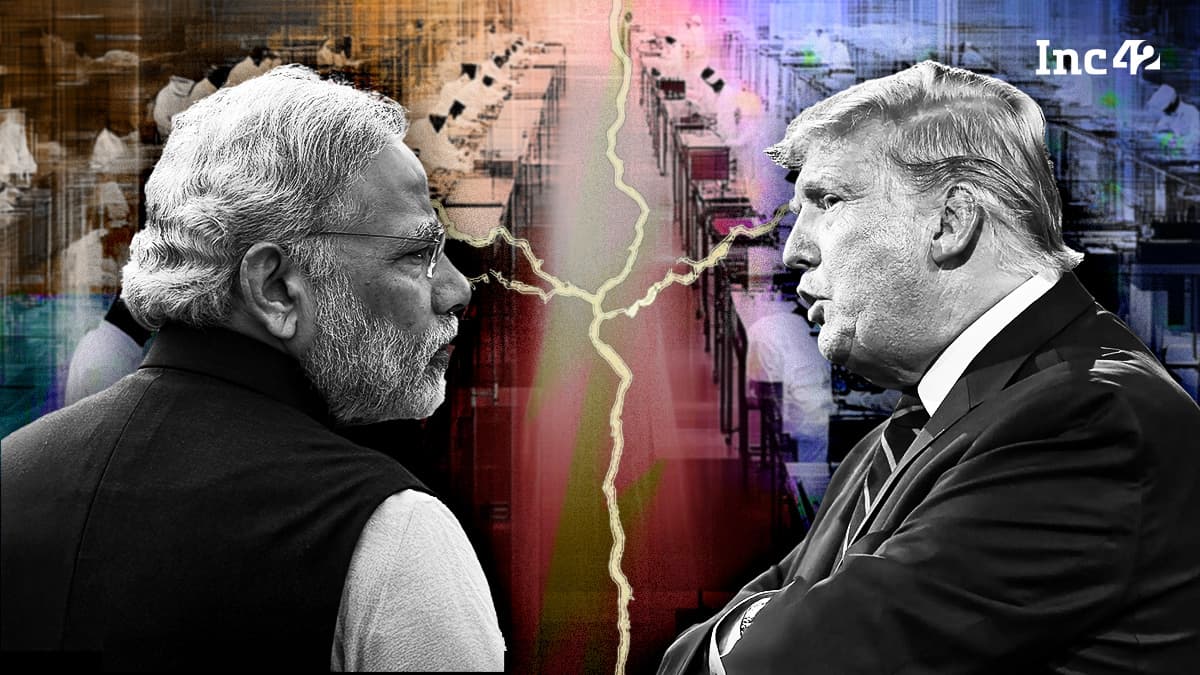Inc42
1d
5k

Image Credit: Inc42
Will India Get Squeezed Between Trump And Apple?
- US President Donald Trump's recent comments on Apple's manufacturing in India imply a potential shift back to China amidst ongoing trade negotiations.
- India has emerged as a significant manufacturing hub for Apple, showing substantial production growth and strategic importance.
- Trump's criticism of India's high tariffs overlooks the benefits and complexities of iPhone assembly in India.
- Potential Apple exit from India could prompt India to invest in deeper manufacturing sectors like semiconductors, enhancing its competitiveness.
- Shifting Apple's assembly to the US faces challenges like significantly higher labor costs and lack of skilled workers.
- Trump's stance might be aimed at influencing Apple's China strategy amidst US-China trade negotiations and domestic political gains.
- The US-India Subnational Innovation Competitiveness Index highlights the gap in R&D capabilities between the two countries.
- India needs to focus on strengthening its innovative ecosystem to move beyond assembly to true value addition and become an innovation partner.
- Collaboration between academia, industry, and government is crucial for India's innovation development, according to recommendations.
- The path forward for India involves fostering innovation to secure a position in the global tech value chain and not just relying on assembly jobs.
Read Full Article
17 Likes
For uninterrupted reading, download the app